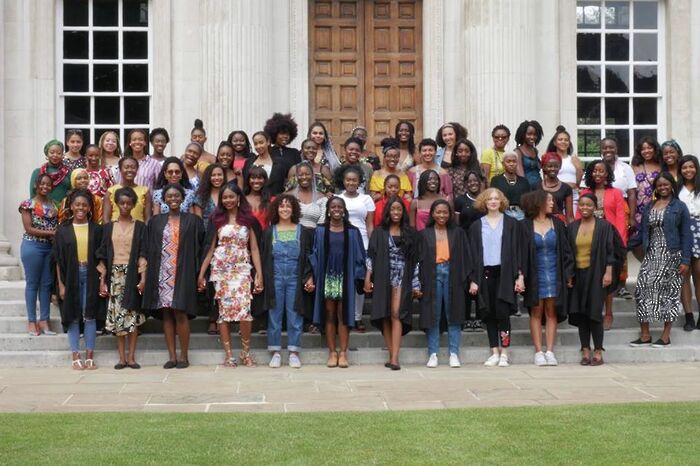Becoming foreign: how Cambridge chipped away at my sense of identity and belonging
Constantly assumed to be a tourist or an international student, columnist Sophie Zhang discusses the microaggressions that characterised their first year at Cambridge

When I first came to Cambridge, I was filled with a naïve excitement about studying at such a prestigious university. Even more outlandishly, I had high hopes for making Cambridge my home – a place where I could feel like I belonged after years of moving around.
As term progressed, however, I began to feel more and more disoriented. I navigated my walled college nervously, and was left only with the feeling that I did not belong in Cambridge. And it was not only Cambridge, but the whole of the United Kingdom that felt alien to me. Despite having spent eighteen years in this rain-sodden country, despite sporting a giant British coat of arms on my passport cover, during my first term in Cambridge I became foreign.
Unlike many freshers, I wasn’t particularly set on presenting a new version of myself to the world upon setting foot in university. But I would find, whether I liked it or not, that my identity would in fact be contested once I arrived in Cambridge. There would come to be my pre-existing identity, the one I had formed before coming to Cambridge and brought with me, and the other identity that people would often assume from my skin colour: foreign, international student, tourist.
I would find, whether I liked it or not, my identity would in fact be contested once I arrived in Cambridge
As my time in Cambridge went on, a series of small microaggressions built up, chipping away at my sense of identity and belonging. Being signalled not to enter my own college by a random white person because I was assumed to be a tourist. Assumptions that English was not my first language. The realisation that people automatically categorise me as an international student, if not a tourist, purely for being of East Asian descent. I was increasingly given the impression that in Cambridge, to be British was to be white British, and to be of visible East Asian heritage was to be foreign. The message seemed to be that “you cannot be both”. To the sound of praise for Cambridge’s progressiveness and the values of diversity, inclusivity and tolerance that British society supposedly espoused, I could feel parts of my identity and past being slowly but surely erased.
Sometimes I ended up being swept away by these microaggressions, feeling that I was foreign, just as others had made me feel. It was strange; I had spent as many hours as everyone else studying Shakespeare and Henry VIII, debating British politics, and waiting for the Tube, only to feel that those hours had suddenly vanished, that I had never actually done those things. In Cambridge, being a visible person of colour and of Chinese heritage, I was automatically read as foreign, and those memories and tenets of my identity vanished like dust into the skies. I felt like I had been uprooted from my own personal history.
Initially, I found it very hard to process the microaggressions, and sometimes found myself consumed by them. I was particularly confused, because I had been reading and hearing about how positive and progressive Cambridge is, only to forget that groups of vocal students pushing for progressive reform do not erase Cambridge’s history as an institution created with a certain type of person in mind. I had forgotten that history casts a long shadow over the present.
Eventually, I did find places in which I could belong. I’ve gained so much support and insight from participating in groups such as FLY. With time, through my degree, and through talking openly with others about my experiences, I gained the tools to articulate and comprehend my own experiences at Cambridge, and in the UK more generally.
I can only speak for my own experience, and it is true that many of my BME friends have had many different experiences in Cambridge, some more pleasant than mines, but others much more unpleasant than my own. However, as an institution that has historically thrived off exclusion and privilege, we must be alert to how remnants of this might proliferate today, especially for people who do not fit the bill of a ‘typical Cambridge student’. It is vital to listen to others and to seek to improve everybody's experience at Cambridge, through changes in our own actions as well as in the policies of the University.
 Comment / Cambridge’s tourism risks commodifying students18 April 2025
Comment / Cambridge’s tourism risks commodifying students18 April 2025 News / Cambridge student numbers fall amid nationwide decline14 April 2025
News / Cambridge student numbers fall amid nationwide decline14 April 2025 News / Greenwich House occupiers miss deadline to respond to University legal action15 April 2025
News / Greenwich House occupiers miss deadline to respond to University legal action15 April 2025 Comment / The Cambridge workload prioritises quantity over quality 16 April 2025
Comment / The Cambridge workload prioritises quantity over quality 16 April 2025 News / Varsity ChatGPT survey17 April 2025
News / Varsity ChatGPT survey17 April 2025





